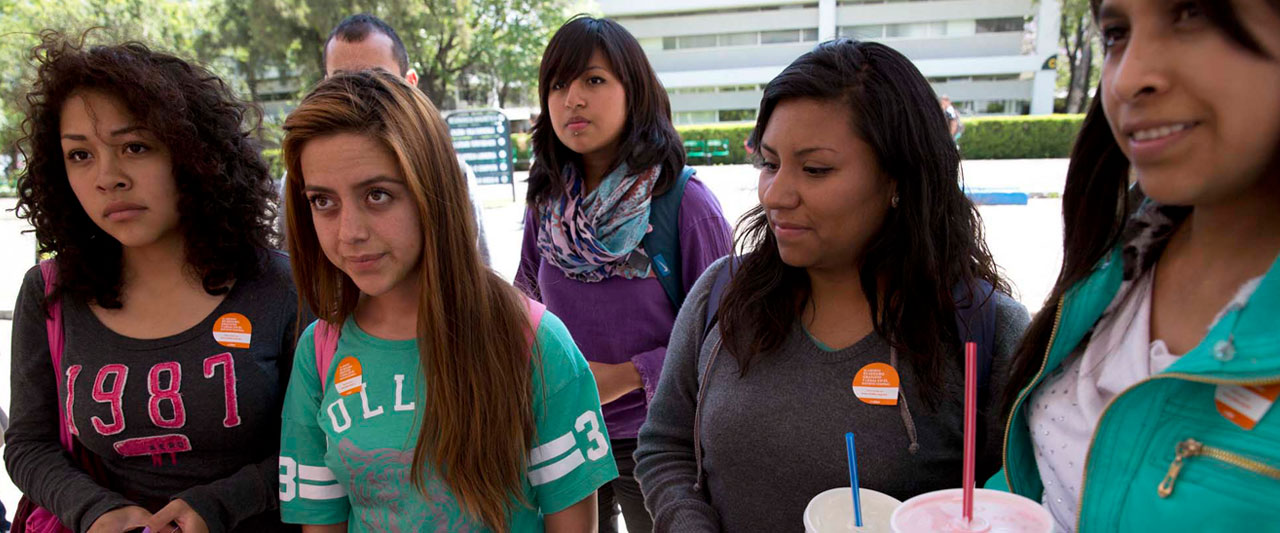A study released last month by Ipas Mexico finds that sexual violence is a significant cause of pregnancies in Mexican girls ages 10-14—and recommends specific actions in the country’s health, education and legal sectors to combat the problem and ensure victims can access adequate care, including safe abortion services.
The study, “Sexual violence and child pregnancy in Mexico: A public health and human rights problem” (available only in Spanish), analyzes the conditions under which child and adolescent pregnancy occurs. Early pregnancy in Mexico is commonly believed to be the result of deliberate actions taken by girls and boys younger than 15 who begin having sex without information about contraceptives or how to obtain them. However, the study finds that pregnancy in this age group is frequently the result of factors outside girls’ control, such as sexual abuse and violence, manipulation and extortion by older men, unequal power dynamics in relationships, and poverty.
“What these findings clearly show is that early pregnancy is not usually caused by adolescents having consensual sexual relationships, but rather is the result of girls and adolescents being coerced by adult men into having sex through physical force, extortion, manipulation and threats,” says Eliana Olaizola, director of Ipas Mexico. Indeed, the study finds that 70% of girls ages 10-14 who have given birth reported the age of the father was between 18-78.
Mexico’s pregnancy rate among girls ages 10-14 has been increasing in recent years, reaching a high of 11,808 births in 2016, according to the study. And the problem of sexual violence is widespread, the study also shows: A national survey in 2016 found that 4.4 million women surveyed had suffered sexual abuse during childhood, and 1.2 million were made to have sexual relations by force or by threat. Further, eight of every 10 abusers are known to the women and girls who are victims, and 67% are family members.
Girls facing pregnancy as the result of sexual violence are at high risk of resorting to unsafe abortion, which is the third leading cause of maternal death in Mexico. While abortion is legal in Mexico’s Federal District (which includes Mexico City), the procedure is legally restricted in all other states. In early July, Ipas Mexico and partners included findings from this new study in a presentation to the United Nations’ Committee on the Elimination of Discrimination against Women (CEDAW) that focused on violations to women’s human rights resulting from sexual violence and legal abortion restrictions in the country.
Recommendations for ending child pregnancy
For this study, Ipas Mexico analyzed data from a variety of national surveys, assessments and statistics because no integrated record-keeping system exists for national statistics on child and adolescent pregnancy, or the unsafe abortions that often result.
“The information presented in this study will make strategic decisionmaking easier for those working to eradicate child pregnancy and improve care for sexual violence victims who become pregnant,” says Olaizola. “For Mexico to reach the goals on gender equity and sexual and reproductive health set forth in the 2030 Agenda for Sustainable Development—as well as the country’s national commitment to eradicate pregnancy in girls younger than 15—specific actions will be necessary.”
The study recommends Mexico implement the following:
- National protocols for sexual and reproductive health services at the primary-care level that are youth-friendly, focus on identifying sexual violence cases, and offer access to safe, legal abortion
- Education for girls and adolescents on how to seek care for sexual violence and unwanted pregnancy
- Consistent national record-keeping, research and evaluation on sexual violence affecting girls and adolescents, the health and legal services offered to them, and the services’ efficacy in reducing deaths and injuries from complications of early pregnancy and unsafe abortion
In Mexico and worldwide, girls and adolescents with unwanted pregnancies are at higher risk for pregnancy complications than adult women and face more barriers when trying to access safe abortion information and services. For this reason, pregnant girls and adolescents are more likely to obtain abortions in later stages of pregnancy, resort to seeing unqualified abortion providers, use unsafe abortion methods, and postpone seeking medical care for complications that arise.
For more information, contact [email protected]


